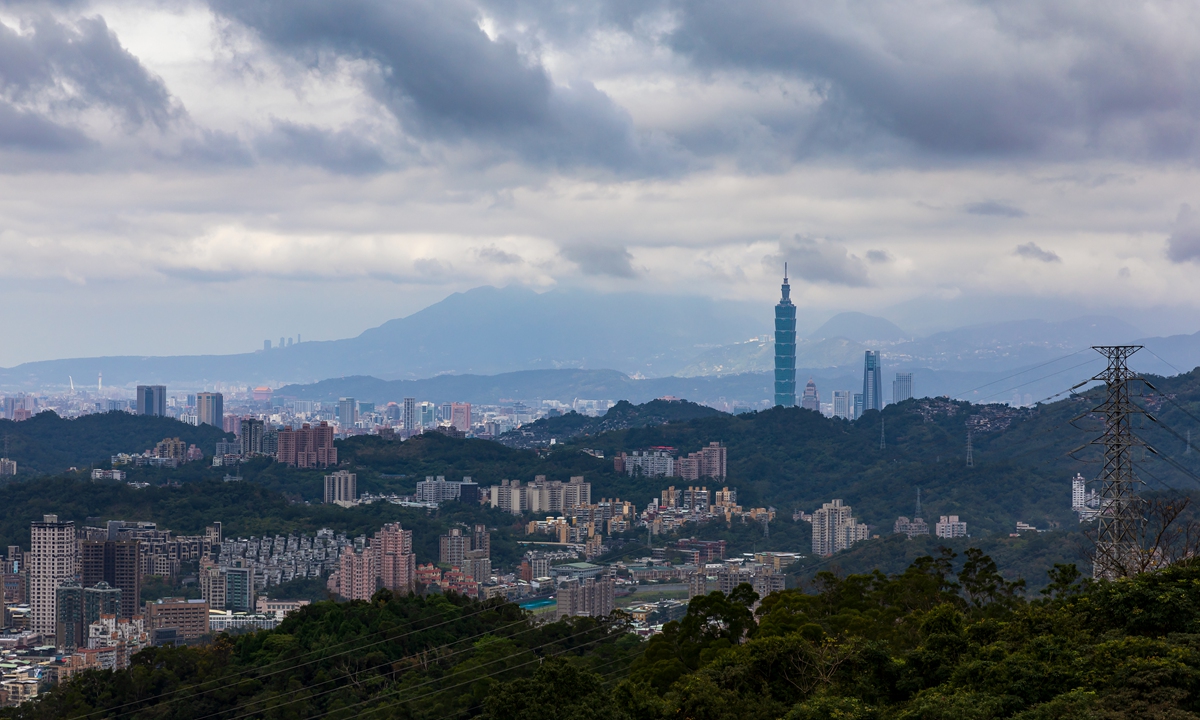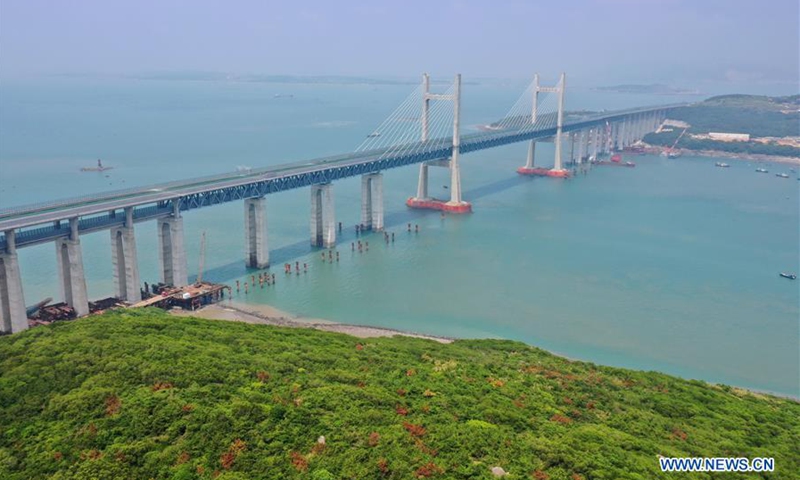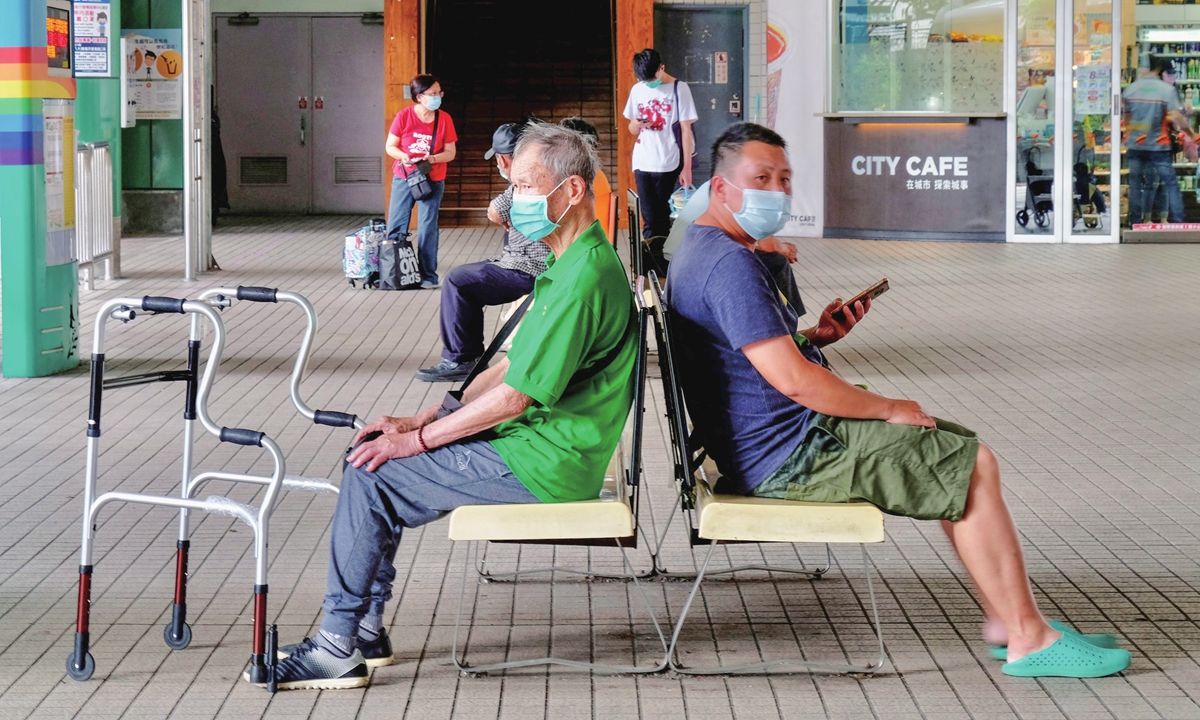GT investigates: More youth eager to discuss how to govern Taiwan after reunification, quash bias toward mainland
Why is national reunification an unshakable demand?

GT investigates Year ender.Graphic:GT
Editor's Note:
Although the cross-Taiwan Straits situation has become more and more intense in 2021, many from the Chinese mainland and the island of Taiwan also see the bright side as they believe the tensions will speed up the process of reunification as the mainland pushes the process step by step.
This optimistic sentiment is based on confidence, patience and determination, and some mainland experts and many interviewees from Taiwan reached by the Global Times suggested that the discussion on how to govern Taiwan in the post-reunification era should be started and increased for the people in Taiwan to better learn about why reunification with the mainland is necessary and will greatly improve their livelihood and political environment.
This is the second part of a report to answer "Why reunification is an unshakable demand?" The first part is available here.

A view of Taipei. Photo:VCG
The intense situation in the Taiwan Straits in 2021 brought the anxiety of war among international media and observers, but for Chinese from the Chinese mainland and Taiwan, discussions over "reunification" have increased, and apart from the concern of a military conflict, optimism that reunification could be realized soon is also increasing.
Analysts said that since the people are expecting reunification, the academic circle and think tanks need to increase open discussions on how to govern Taiwan after reunification, to let the public, especially those in Taiwan who are still concerned or worried about the reunification and hold a pro-secessionist sentiment, better understand why reunification is necessary and will bring them a bright future.
Going to Taiwan in 2035?
A popular song titled "Go to Taiwan in 2035" showed the rising expectations and optimism in the mainland and it's also affecting the people in Taiwan. The song went viral on Sina Weibo, Douyin, TikTok and YouTube in November.
Meng Xudong, the songwriter, told the Global Times that the song was written in March, when the State Council, China's cabinet, issued the National Comprehensive Transportation Network Plan, suggesting that Taipei, capital of the island of Taiwan, was included in the layout of one of the main routes of the plan, and this plan is scheduled to be realized in 2035.

Aerial photo taken on Aug 25, 2020 shows Pingtan Strait Road-Rail Bridge in East China's Fujian Province.Photo:Xinhua
The Pingtan section of the Pingtan Strait Road-Rail Bridge, the world's longest cross-sea road-rail bridge in East China's Fujian Province, has been fully connected. The national outline on a comprehensive transportation network has planned the construction of a route from Fuzhou in Fujian to Taipei on the island of Taiwan, a spokesperson from the Taiwan Affairs Office of the State Council said at a press briefing in November.
Some speculated that this could mean that the Chinese mainland has a timetable or schedule for the reunification, but mainland experts said there is no schedule; and even if there might be one or it's being discussed, it's not the right time to announce it.
If the mainland has plans to build high-speed railway to link Taiwan with the mainland in 2035, it at least needs to solve the Taiwan question a few years ahead of 2035. But the right time depends on the development of the current situation, said analysts.
The US and Taiwan authorities believe that keeping "strategic ambiguity" and provoking from time to time could keep the mainland away from realizing reunification, and experts said this could be a big mistake.
Shen Yi, a professor at the School of International Relations and Public Affairs of Fudan University, told the Global Times that "when the mainland gets fully prepared for the worst case scenario - the US and its allies launch full military intervention and sanctions against China - then the mainland would compress their space of 'strategic ambiguity' and force them to make a choice between 'supporting a peaceful reunification' and another options that could bring destructive consequences to them."
Meng said "one reason the song 'Go to Taiwan in 2035' has been attracting much attention is the way it has aroused consensus among the Chinese people, not only in the Chinese mainland but also in Taiwan."
"I saw some online videos showing children 3 to 5 years old sing the song together in Taiwan, which was moving. When some secessionists in Taiwan force the public to forget about their motherland and where they came from by deleting mainland-related history in children's textbooks, this is the way of remembering who you are," he noted.
"My next songs will be on the Chinese Dream, and 'Go to Taiwan, today,'" Meng said.
Discussions on post-reunification period
Discussions on "how to reunify with Taiwan" have increased in today's Chinese mainland, but in order to convince more Taiwan compatriots to support reunification, some experts suggested that discussions on "how to govern Taiwan after reunification" is also needed.
Many people from Taiwan who study, work, or do business in the mainland said they also agree with this suggestion, because the mainland has been seriously demonized within the island, and many Taiwan residents are afraid of talking about reunification because of the lack of information and too much misunderstanding.
Huang Ching-hsien, head of the Taiwan Studies Center of Nankai University and a former KMT Mainland Affairs Department director, told the Global Times that "the people in Taiwan do not want to see more tensions and are always thinking about how to make their lives better."
Taiwan people expect an attainable prosperous future. "But as opposed to the people in the mainland who are full of confidence, Taiwan people are far more pessimistic about their future and the fate of the island," Huang said.
"Although the mainland is really on the side of releasing goodwill, it basically focused on a macro perspective when talking about the benefits of reunification but rarely let the Taiwan people know what is specifically good about reunification," he said.
Huang hopes that in the next step, the mainland will better explain the benefits of reunification to the people of Taiwan in a down-to-earth way.
Zheng Bo-yu, 32, from Taiwan, has worked in Beijing for years, and said that discussions on how to govern and reform Taiwan after reunification are needed.
Zheng, also manager of the Beijing-based Vstartup Station of Taiwan, an institution helping Taiwan youth apply to mainland universities and gain internships at mainland firms, said that "the youth in Taiwan are pessimistic since the development of the island has stagnated."
Li Qiao-xin, who has nearly 1 million followers on Douyin, has attracted attention across the Straits for posting a series of videos to introduce her experience of living in the mainland.
"The longer I live in the mainland, the more convenient I found life could be here. Taking the cellphone is enough when going outside, but in the island of Taiwan, we need to take a purse with cash and other stuff to take the subway or do other things," said Li.
"I wish to accomplish reunification as soon as possible and I support 'one country, one system' instead of 'one country, two system,' because the best system is the one that people recognize and support. I live here, witnessing the development and efficiency and feeling the improving confidence of the people," Zheng said.

Local residents wearing masks wait for buses in New Taipei City on May 15. Photo: AFP
Taiwan has become a chess piece in the China-US competition and it serves the US to contain China's development. Rotation of ruling parties and ideological propaganda over cross-Straits affairs is one of the major causes of the current intense cross-Straits relations, Feng Renjie, a youngster from the island who obtained a master's degree at Peking University in Beijing, told the Global Times.The previous development in cross-Straits relations was based on the 1992 Consensus. But the DPP broke the mutual trust between the two sides for its own political interests, which stifled the two sides' exchanges and led to more misunderstandings, Feng said.
Some Western media said what the people in Taiwan truly want is "democracy" and "freedom" rather than development. Zheng and some interviewees from Taiwan in the mainland disagree, because they have witnessed which system is better and could really serve the interests of the people.
"With the so-called 'democracy,' Taiwan cannot even finish building the high-speed railway because of public opinions are always changing and different political forces use this to serve their own interests. If the old political system remains after reunification, Taiwan may still have no actual development. Learning from what happened in the 2019 Hong Kong turmoil, the old system must be changed, and this is best for the island," he said.
Cindy Mei, 23, a student at a university in Taipei, told the Global Times that "what Taiwan needs to change after reunification is the political system. The mainland could make people here think of a bigger picture, to change their problematic mind. The atmosphere here is sick. If 'democracy' is so good, why can't we elect officials that could realize development? If the mainland is not democratic, why are people there are so confident and enjoying fast development? The people here have all been manipulated by the DPP authority and the irresponsible media."
"Seriously, the mainland needs to cure this for Taiwan after reunification," she noted.
Li Fei, a professor from the Taiwan Research Institute at Xiamen University, said scholars and officials in the mainland are researching on how to govern Taiwan after reunification, and we have multiple plans for different possibilities and scenarios, but many of them are not ready to be discussed openly.
Shen said that in some fields, such as how to punish the secessionists based on the laws, how to improve the island's infrastructure, how to let the people in the island better share in the development of the mainland, how to fix the problematic education system, how to transform those with pro-secessionist ideas into a proud and confident Chinese citizen like every one of us, "these are all discussable."
Many of the young people in Taiwan are confused about their future. They dare not imagine or change but have to fool themselves into believing in the propaganda of the DPP, said Zheng. "On the contrary, I believe what I see. I saw the mainland make nationwide efforts to finish all kinds of development goals it set. I have confidence in the mainland. It is the place where promises can be fulfilled," Zheng noted.
"And I also firmly believe that after reunification, the people in Taiwan will also be proud and confident," because the development environment can be improved both in the island and the mainland after reunification. "Taiwan will also realize its goals and wishes step by step through hard work, just as the mainland has done."
Li Qiao-xin said "I and my friends from Taiwan living in the mainland hope the reunification would come as soon as possible and the best way is a peaceful way."
"We are as keen as many friends in the mainland on reunification and hope the day would come soon. Many Taiwan friends who came to live in the mainland experienced a similar shock at the beginning when we came here and knew that we were misled by media in the island," said Li.



